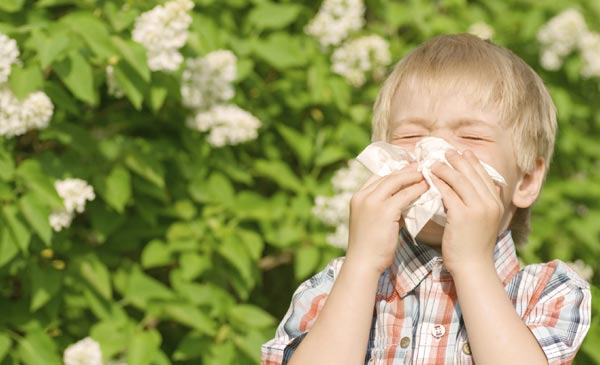Hay fever rises with spring season
 |
|
Children with hay fever often have increased incidence of asthma, glue ear, sinusitis, malignant snoring and adenoid hyperplasia. Photo provided to China Daily |
When hay fever affects children, the situation will be even trickier.
Children with hay fever often have increased incidence of asthma, glue ear, sinusitis, malignant snoring and adenoid hyperplasia (the over-enlargement of the lymph glands located above the back of the mouth), which are bad for their body development and overall health.
But many patients don't follow doctors' orders and often skip medications, which makes treatment less effective, Zhu says.
Zhang says he has met lots of patients who suffered from wrong treatments.
One of the patients is a woman in her 30s. Over the past five years, she often caught a "cold", which occurred suddenly and made her nose stuffy.
Busy with work, she didn't go to a doctor until last year. She was diagnosed with having a cold and took medication for about two months until doctors found she actually had hay fever.
Her condition had become so severe that the inflammation had made her nose stinky.
Now the woman has become much better after taking traditional Chinese medicines, Zhang says.
Zhang claims TCM is good at treating hay fever, because it improves patients' general health and balances their disordered immunity.
However, it is always better to prevent an illness than to seek relief after it strikes.
Keeping a healthy lifestyle, maintaining good immunity and avoiding trigger factors, such as pollution, fatigue and the cold, are the keys to prevent allergic rhinitis, experts say.
Zhu also recommends that the government report the pollen concentration level to the public, so that people with allergies can be better informed.
















